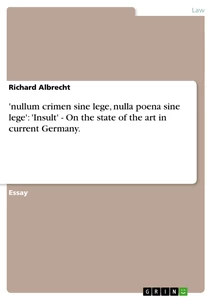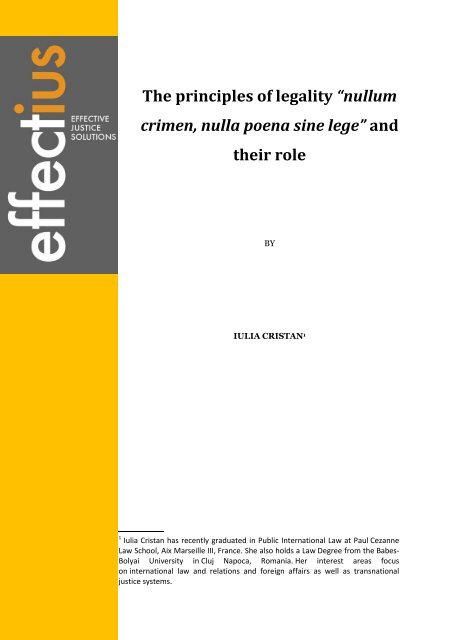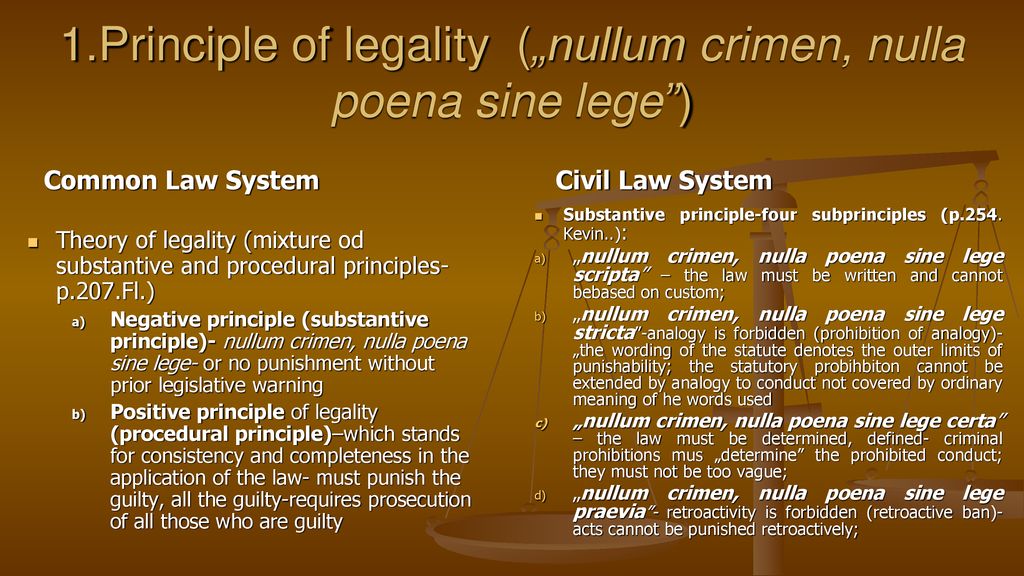Nulla Poena Sine Lege

For more on nullum crimen sine lege see this statute law review article this journal of international criminal justice article and this georgetown law journal article.
Nulla poena sine lege. Nulla poena sine lege and nullum crimen sine lege protect the right to liberty. Only the law can define a crime and a penalty. Nulla poena sine culpa latin for no punishment without fault or no punishment without culpability or the guilt principle is a legal principle requiring that one cannot be punished for something that they are not guilty of. Nulla poena sine lege is a legal principle requiring that one cannot be punished for doing something that is not prohibited by law.
Nulla poena sine lege is a latin phrase that means no penalty without law this legal concept which has long been a fundamental idea of written law forbids the penalization of actions that are not governed by a statute or law. To respect the principle of legality the scope of the crime and the applicable punishment must be set out in clear terms before its commission. It is also interchangable with nullum poena sine lege which translates to no punishment without law. This principle is accepted as just and upheld by the united states law.
This principle opposes among other things arbitrary punishment and retrospective legislation. Nulla poena sine lege is a latin maxim which means no penalty without a law according to this maxim no one can be punished for doing something that is not prohibited by law. This principle is accepted and codified in modern democratic states as a basic requirement of the rule of law. Nullum crimen nulla peona sine lege.
Nulla poena sine lege from latin literally no penalty without law a legal principle that a person cannot be punished for an action if that action is not prohibited by law. It has been described as one of the most widely held value judgement in the entire history of human thought.


















